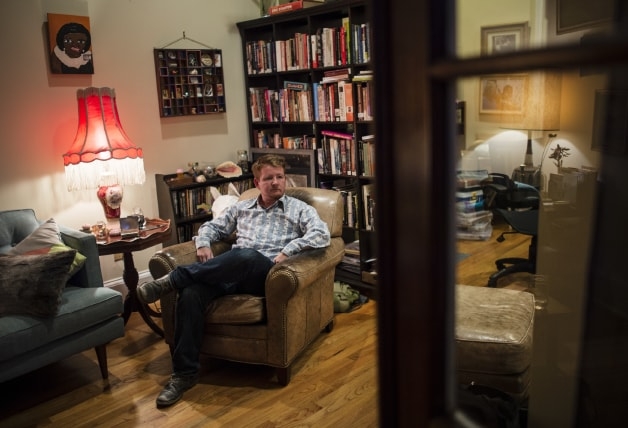
“For me, there’s the work you do to pay the bills and then there’s the work you do to be in connection to other humans on the planet.”
Red Tremmel, a historian and assistant professor at Tulane University, is the only openly transgender faculty in New Orleans—a pressurized scenario: “I think about it, first and foremost, in terms of the students and what would it be like to only have one faculty member who teaches about transgender issues; who is trans, and who is out,” he explains. “They’re looking around at their future world—that’s what they do when they come to school—and they’re looking for who’s doing it, who is surviving, and to only have one person on campus, I imagine is stressful for them.” Red frames his work by saying, “Love matters to me the most. Having loving relationships. Creating thought that produces more possibility for love. It sounds cheesy, but it turns out it’s really crucial to doing things that are very difficult.”
Coming from three generations of single mothers, Red’s working-class family shaped him: “My mom is a writer and an artist, so I understood work to be the thing you did so that you could do other things in the world.” His grandmother worked as a waitress until she was 75 to make “other things” possible for the family. Following them, Red has focused on creating life-affirming “other things.” For example, he directed a documentary about retired burlesque dancers turning a goat ranch in the Desert into a history museum. He DJs in his neighborhood bar, researches play spaces as sites of historical social struggle, and is creating a walking meditation on the history of desire in New Orleans. Red sees his work as an experiment: “I think I’m making my work up as I go. I’m having a very improvisational life. I can look back on it and narrate into something, but I really do feel like I’m making it up as I go.”







